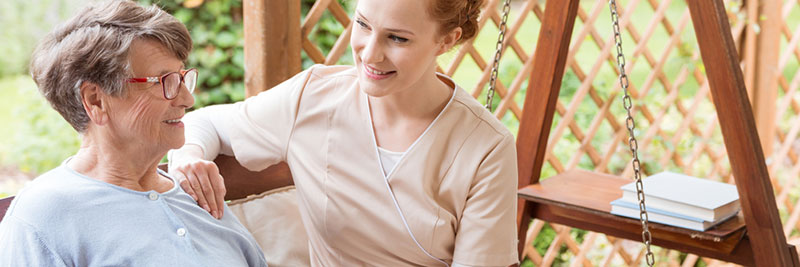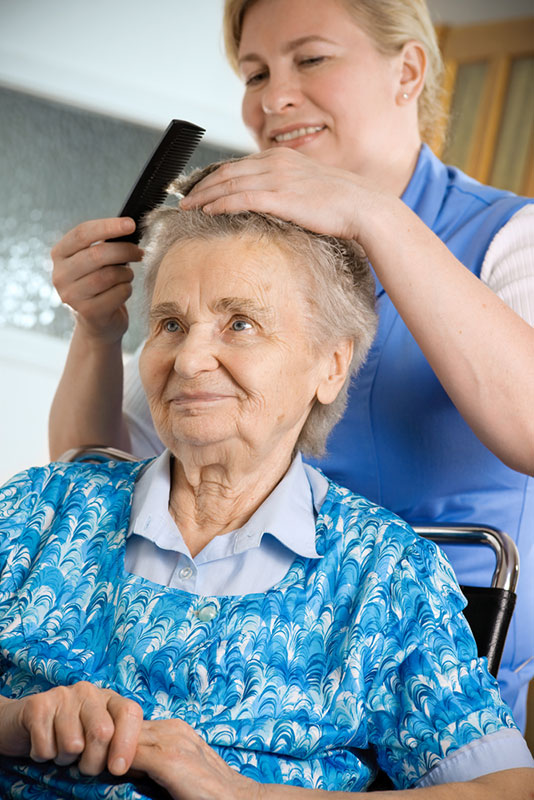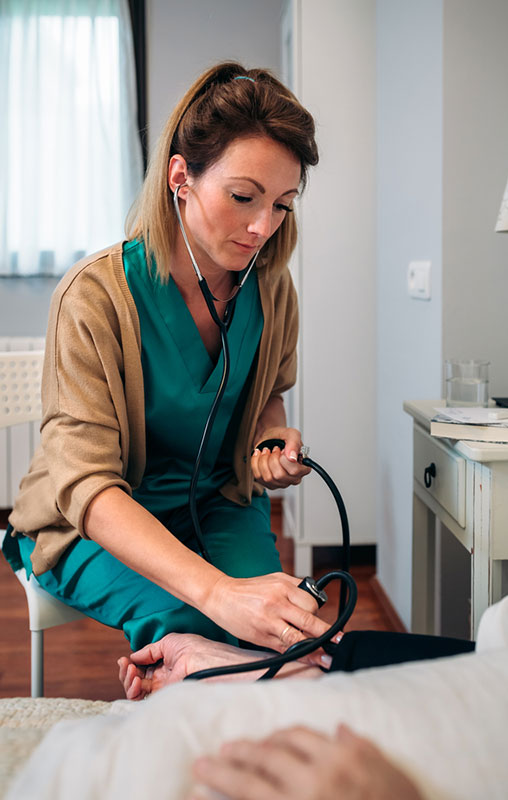Companion & Daily Living Care
Sometimes, just having a friendly face show up – can make a world of difference
Whether you or an elderly loved one needs us a couple of hours a day or 24/7, short-term or long-term, we act as your partner in their care. Both physical and emotional. Our companion aides provide most any non-medical help you can think of, including:
- Acting as your loved one’s advocate and ensure they get the attention they need
- Assisting with home safety—making sure spaces are well-lit and free of obstacles and hazards
- Light housekeeping and laundry
- Planning, shopping and preparing meals. Ensuring dietary guidelines are followed and receiving proper nutrition
- Escorting them to grocery shops, hair salons, doctors’ appointments, senior centers & other community activities, their favorite coffee shops, restaurants, or visits to friends and relatives.
- Running errands—trips to the pharmacy, the library, bank, post office, and stores
- Making sure clients with degenerative conditions such as Alzheimer’s and other forms of dementia are safe
- Providing companionship, whether that means simply sitting quietly, engaging in conversation, or looking through pictures and encouraging clients to share stories of their lives

Companionship is known to improve senior’s moods. Scheduled visits by Home Care Aides help to avoid loneliness and isolation which are common causes of depression and illness.
Home Health Care
We’re More than Just – Taking Care
When a client needs more than companionship or help with daily activities of life, we may recommend a more focused hands on care plan with services provided by a Certified Home Health Aide, Certified Nursing Assistant or other appropriately trained caregiver.
Many O’Connell Aides are specifically trained in caring for people with cognitive impairment, disabilities, or chronically ill. Our aides regularly provide this level of care to persons living in private residences, assisted living communities and retirement homes.
Regardless of the level of training or experience in home health care, home care aides are limited in the scope and type of medical related tasks they can perform. True medical care requires a licensed nurse; but trained Home Care Aides can and regularly provide observational supporting service under their supervision and direction..
These may include:
- Checking vital signs, such as pulse, temperature, blood pressure and respiration rate
- Ensuring the client is free from infections and bed sores
- Helping with simple prescribed exercises
- Making sure dietary requirements are followed and the client is receiving proper nutrition
- Monitoring the client’s physical and cognitive functioning and reporting symptoms that may signal a change to the supervising nurse.
- Assistance in the use of walkers and equipment relating to personal hygiene
- Reminding clients to take prescribed medication at scheduled time



